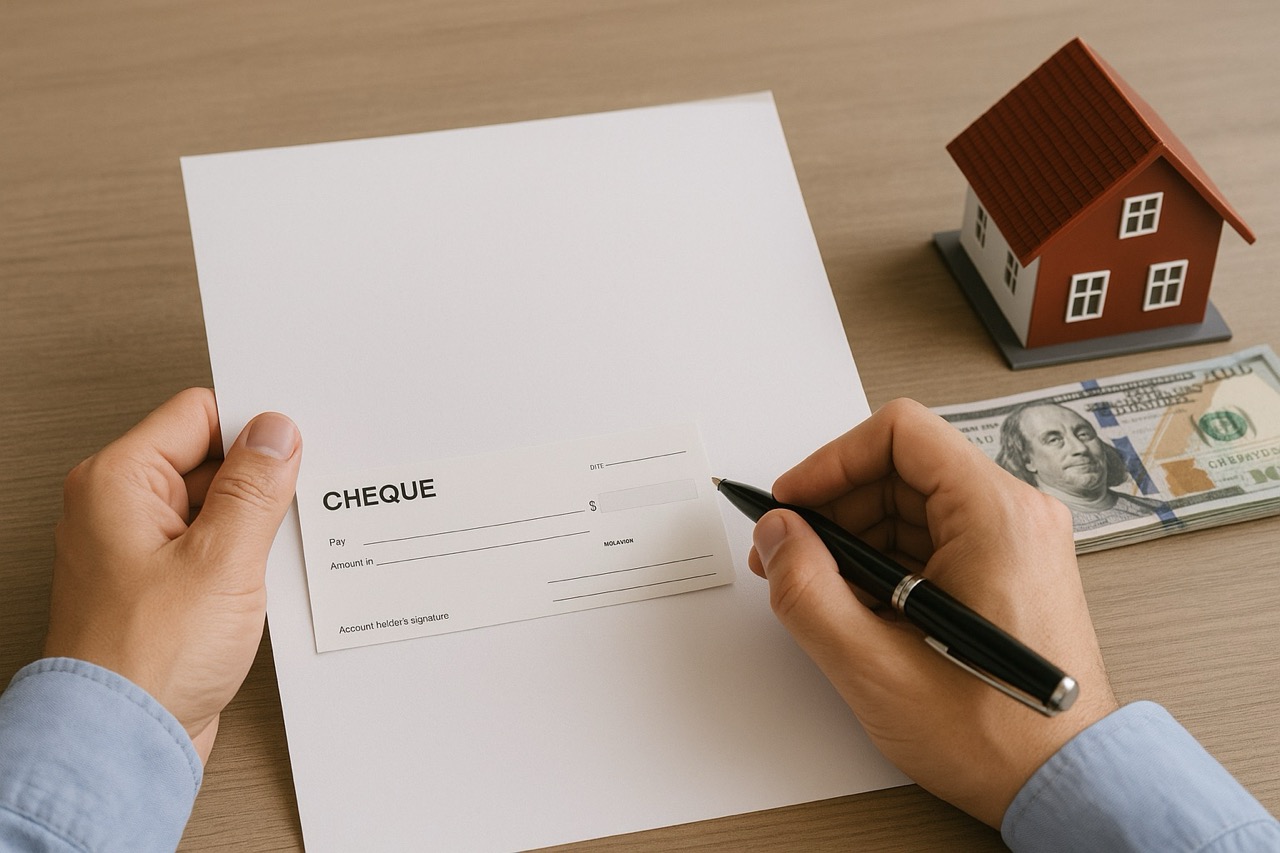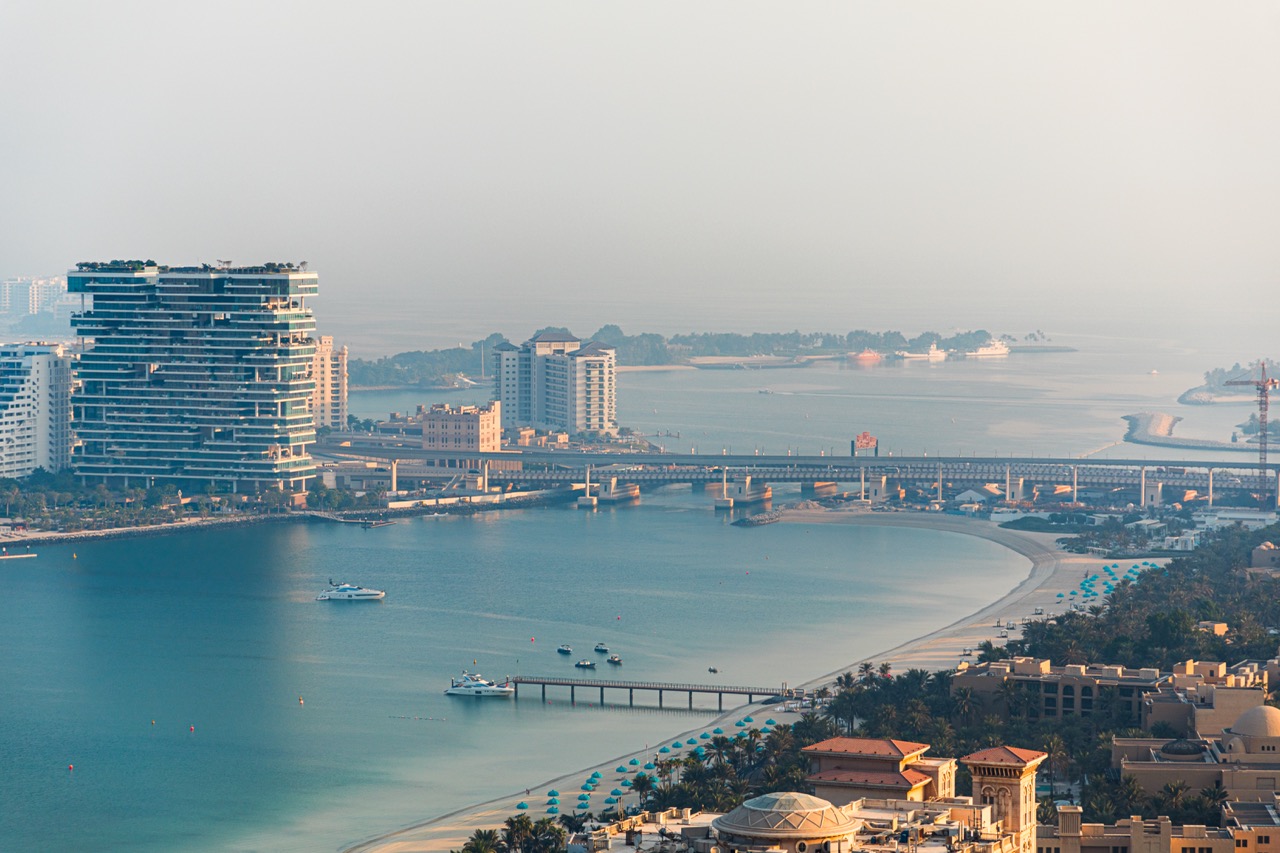- About Lavinia
- Advanced Search
- Blog
- Compare Listings
- Contact
- Dashboard – Add Agent
- Dashboard – Add Property
- Dashboard – Agent List
- Dashboard – Favorite Properties
- Dashboard – Inbox
- Dashboard – Invoices
- Dashboard – Main
- Dashboard – Profile Page
- Dashboard – Property List
- Dashboard – Saved Searches
- Dashboard – Search Results
- Dashboard -Analytics
- developer page 2
- developer page 3
- Developers
- home
- List Property
- Off-Plan
- Privacy Policy
- Property Submit – Front
- Rent
- Sale
- Sobha Solis
- Terms of Use
- test 5
- test search
- tst
- WpEstate CRM
- WpEstate CRM Contacts
- WpEstate CRM Leads / Inquires
Top 8 Rental Laws Every Tenant Should Know in Dubai

Essential Dubai Rental Laws for Tenants
- Dubai has specific rental laws governed by the Real Estate Regulatory Agency (RERA)
- Tenancy contracts must be registered through the Ejari system
- Rent increases are regulated and capped according to RERA's rent calculator
- Security deposits are typically 5% of the annual rent for unfurnished properties
- Landlords must provide proper notice periods for eviction or non-renewal
- Multiple payment methods are available for rent in Dubai, including post-dated cheques
- Maintenance responsibilities are typically divided between landlord and tenant
- Dispute resolution is handled through the Rental Dispute Settlement Center
Understanding Dubai's Rental Landscape
Dubai's rental market is highly regulated with specific laws to protect both tenants and landlords. As a city where most residents are expatriates, knowing the rules about renting is super important. The Dubai Land Department and its regulatory arm, RERA (Real Estate Regulatory Authority), oversee all rental relationships in the emirate. These institutions work to maintain balance and fairness in what can be a complex and fast-moving property market, ensuring that both property owners and tenants understand their legal obligations and rights.
For tenants, these laws can seem complicated at first, especially if you're new to the UAE. But learning about your rights and responsibilities will help you avoid problems and have a better renting experience. Understanding the tenant-landlord legal framework is the first step to protecting yourself as a renter in Dubai. This knowledge becomes particularly valuable when navigating lease negotiations, handling maintenance issues, or resolving potential disputes with your landlord.
In this guide, we'll cover the most important rental laws every tenant in Dubai should know. From contract registration to maintenance responsibilities, this information will help you make smart choices and protect your interests in Dubai's competitive rental market. Whether you're signing your first lease in the emirate or you're a long-term resident looking to better understand your legal position, these insights will provide valuable guidance throughout your tenancy journey in Dubai.
## 1. Tenancy Contract Registration and Ejari SystemOne of the most basic rules of Dubai's rental laws is that all tenancy contracts must be registered through the Ejari system. Ejari, which means "my rent" in Arabic, is an online registration system created by RERA to regulate the rental market and protect both landlords and tenants. This mandatory registration process creates transparency in the rental market and establishes an official record of all lease agreements throughout the emirate.
Ejari is your official proof of tenancy. Without this registration, your rental contract isn't legally recognized by Dubai authorities. This registration is needed for many important services in Dubai, including setting up utilities (DEWA), applying for visas, enrolling children in schools, and resolving any rental disputes that might come up. The Ejari certificate essentially validates your residency status and serves as an essential document for numerous administrative procedures throughout your stay in Dubai.
The Ejari registration fee is about AED 220, and while technically it's the landlord's job to register, tenants often end up paying for it. You can complete the process online or at typing centers across Dubai. To register, you'll need several documents: the original signed tenancy contract, a copy of the title deed, copies of Emirates ID and passport with visa page for both tenant and landlord, a recent DEWA bill, and previous Ejari certificate if you're renewing. It's best to complete this registration soon after signing your lease agreement to ensure you have access to all necessary services and legal protections under Dubai's rental laws.
## 2. Rent Increases and RERA Rent CalculatorDubai has strict rules about rent increases to protect tenants from sudden price hikes. These rules work through the RERA Rent Calculator, which decides whether a landlord can legally increase your rent and by how much. This system was created to bring stability to the rental market and prevent exploitation, ensuring that rent adjustments reflect actual market conditions rather than random landlord decisions.
According to Dubai's rental laws, landlords cannot increase the rent during the first two years of a tenancy contract. After this period, any rent increase must follow specific guidelines based on how your current rent compares to the market average. This system creates predictability for tenants and allows for better financial planning, while still permitting reasonable adjustments that reflect genuine changes in property values across different neighborhoods.
Dubai Rent Increase Guidelines
- If your rent is 10% or less below market value: No increase allowed
- If your rent is 11-20% below market value: Maximum 5% increase
- If your rent is 21-30% below market value: Maximum 10% increase
- If your rent is 31-40% below market value: Maximum 15% increase
- If your rent is more than 40% below market value: Maximum 20% increase
- Landlords cannot increase rent during the first two years of a tenancy contract
- Any rent increase requires 90 days written notice before contract renewal
- Without proper notice, rent increases can be challenged through the Rental Dispute Settlement Center
- These guidelines are enforced through the RERA Rent Calculator
- The Real Estate Regulatory Agency (RERA) oversees rent increases through the Dubai Rental Index
- Tenancy contracts must be registered with RERA through the Ejari system
- If a tenant remains in the property after lease expiration without landlord objection, the contract automatically renews for another year
- Landlords must provide 12 months' notice for eviction due to property sale, personal use, or major renovation
- Rental disputes are handled by the Rental Dispute Settlement Centre (RDSC)
- Tenants are entitled to compensation for unlawful eviction
Source: Dubai Land Department, RERA Guidelines
A landlord must tell you in writing about any rent increase at least 90 days before your current contract ends. Without this proper notice, the rent increase isn't legally valid, and you can challenge it through the Rental Dispute Settlement Center. This advance notification requirement gives tenants enough time to evaluate their options, negotiate with the landlord, or make other housing arrangements if the proposed increase is too high.
You can check the RERA Rent Calculator on the Dubai Land Department's website or mobile app. To use it, you'll need to know your property type (apartment, villa, etc.), location (area and building), number of bedrooms, and property size in square feet. This tool gives a fair benchmark for rent increases and helps prevent arguments between landlords and tenants. The calculator is regularly updated to reflect current market conditions across different neighborhoods and property types, ensuring that the rent adjustment guidelines remain relevant and fair for all parties involved.
## 3. Security Deposits and Refund ProceduresSecurity deposits are a normal part of renting property in Dubai. They protect landlords against possible damage to the property or unpaid bills. Understanding the rules about security deposits is important for protecting your money as a tenant. While these deposits serve a legitimate purpose in safeguarding property owners' interests, they should not become a source of unfair financial burden for responsible tenants who maintain the property in good condition.
In Dubai, security deposits are usually:
- 5% of the annual rent for unfurnished properties
- 10% of the annual rent for furnished properties
These amounts aren't strictly required by law but have become standard practice. The security deposit is usually paid when signing the tenancy contract, along with your first rent payment. For expensive properties, this can represent a significant sum, so it's important to factor this cost into your initial budget when planning to rent a new home in Dubai. Some landlords may be willing to negotiate these percentages, especially for long-term tenancy agreements.
According to Dubai's rental laws, landlords must return the security deposit within a reasonable time after the tenancy ends, typically within 30-60 days. However, they may deduct costs for damages beyond normal wear and tear, unpaid utility bills, cleaning costs (if the property is left very dirty), or any other breaches of the tenancy contract. To protect your deposit, it's highly recommended to document the property's condition thoroughly when moving in and moving out with dated photographs and videos. This evidence can be invaluable if disputes arise regarding the condition of the property and potential deductions from your security deposit.
## 4. Payment Terms and Cheque RequirementsDubai's rental market has traditionally worked on a system of post-dated cheques, though this practice is slowly changing with newer payment methods. Understanding the legal rules around rental payments is essential for tenants in Dubai. The payment structure you agree to can significantly impact your cash flow and financial planning throughout the year, so it's worth carefully considering the options available to you before signing a tenancy agreement.
The standard practice in Dubai has been to give landlords multiple post-dated cheques covering the entire rental period. Typically, landlords prefer:
1 Cheque (Annual)
Single annual payment that offers 5-10% discount on total rent. Less common but preferred by landlords.
2-4 Cheques
Quarterly or bi-annual payments at standard market rates. Most common payment structure in Dubai rental market.
6-12 Cheques
Monthly or bi-monthly payments for better cash flow. Less common and may increase total rent compared to fewer cheques.
Source: Dubai Land Department (DLD) & Real Estate Regulatory Authority (RERA)
It's important to know that bounced cheques are considered a criminal offense in the UAE, potentially resulting in legal action, fines, and even jail time. Therefore, making sure you have enough money in your account when each cheque is due is very important. This aspect of Dubai's legal system makes rental payments particularly serious, as financial difficulties that might lead to a bounced cheque can have consequences beyond just civil penalties. Many tenants maintain dedicated accounts or emergency funds specifically to ensure their rental cheques will clear when presented.
The Dubai rental market is slowly accepting other payment methods: direct debit arrangements through banks, regular bank transfers scheduled for rent payment dates, and specialized platforms like the Dubai REST app that allow for digital payments. Our comprehensive guide to making rental payments in Dubai provides detailed information on various payment options and their legal implications. These alternative payment methods are becoming increasingly popular, especially among younger tenants and international residents who prefer digital transactions over traditional cheque payments. Some landlords now offer multiple payment options, recognizing that flexibility in this area can be an attractive feature for prospective tenants.
## 5. Maintenance and Repair ResponsibilitiesClear maintenance responsibilities are important for a good landlord-tenant relationship. Dubai's rental laws outline specific duties for both parties regarding property maintenance and repairs. Understanding these responsibilities from the outset can prevent misunderstandings and conflicts during your tenancy, ensuring that necessary repairs are addressed promptly and by the appropriate party.
According to Dubai's tenancy laws, landlords are responsible for:
- Structural repairs: Maintaining the building's structure, including walls, roof, and foundation
- Major systems: Ensuring electrical, plumbing, and air conditioning systems work properly
- Common areas: Maintaining shared facilities like elevators, swimming pools, and gyms
- Major appliances: Repairing or replacing built-in appliances that came with the property
- External maintenance: Upkeep of the building exterior, including facades and gardens
Tenants are generally responsible for:
- Minor repairs: Day-to-day maintenance like changing light bulbs and unclogging drains
- General upkeep: Keeping the property clean and in good condition
- Damage repair: Fixing any damage caused by the tenant, family members, or guests
- Regular maintenance: Routine servicing of appliances and fixtures
- Pest control: Basic pest control measures (unless it's a building-wide issue)
If maintenance disputes happen, you should document the issue with photos and videos, send a written notice to your landlord describing the problem, keep records of all communications, and if the landlord doesn't respond, file a complaint with the Rental Dispute Settlement Center. Many tenancy contracts in Dubai include specific maintenance clauses that may further clarify these responsibilities, sometimes setting financial thresholds (e.g., repairs under AED 500 are tenant's responsibility) or establishing procedures for emergency repairs. It's advisable to carefully review these clauses before signing your rental agreement to ensure you fully understand your maintenance obligations.
## 6. Eviction and Notice Period RegulationsDubai's rental laws provide clear guidelines about eviction procedures and notice periods to protect both landlords and tenants. Understanding these rules is important for dealing with potential tenancy terminations. These regulations ensure that tenants have adequate time to find alternative accommodation when necessary, while also protecting landlords' rights to regain possession of their properties under specific legitimate circumstances.
According to Dubai's rental laws, a landlord can only evict a tenant before the end of the tenancy contract under specific circumstances:
| Reason for Eviction | Notice Period | Details | Status |
|---|---|---|---|
| Non-payment of rent | 30 days | After receiving a payment notice | Urgent |
| Illegal use of property | Immediate | For illegal activities or public morality violations | Critical |
| Unauthorized subletting | 30 days | Without written landlord approval | Serious |
| Major property damage | 30 days | Beyond normal wear and tear | Serious |
| Violation of contract terms | 30 days | Breach of specific tenancy agreement conditions | Serious |
| Property sale | 12 months | With proper notice through Notary Public | Standard |
| Personal use | 12 months | For owner or first-degree relatives | Standard |
| Major renovations | 12 months | For substantial reconstruction work | Standard |
Source: Dubai Rental Laws and Tenancy Regulations |
The eviction process in Dubai follows these steps: written notification, filing a case with the Rental Dispute Settlement Center if the tenant doesn't comply, a hearing where both parties present their case, judgment, and if necessary, authorities enforcing the eviction. Tenants have the right to contest eviction notices if they believe they're unfair or if proper procedures weren't followed. It's worth noting that Dubai's rental laws provide significant protection for tenants against arbitrary eviction, with the 12-month notice period for property sale or personal use being particularly tenant-friendly compared to many other jurisdictions. This extended notice period gives tenants ample time to search for new accommodation without undue pressure.
## 7. Rental Dispute Resolution MechanismsDubai has a special judicial system for handling rental disputes efficiently. Understanding these resolution mechanisms is essential for tenants facing conflicts with their landlords. This specialized system was established to provide faster and more effective resolution of tenancy issues compared to the regular court system, recognizing the importance of housing stability and the often time-sensitive nature of rental disputes.
The Rental Dispute Settlement Center (RDSC), established under the Dubai Land Department, is the main authority for resolving rental disputes in Dubai. The RDSC handles various types of disputes, including rent increases and decreases, maintenance issues, eviction cases, security deposit refunds, contract terminations, and utility bill disputes. Staffed by judges and legal experts specializing in property law, the RDSC aims to resolve disputes fairly and efficiently, typically reaching decisions much faster than would be possible through conventional courts.
To file a complaint with the RDSC, you need to gather all relevant documents (tenancy contract, Ejari certificate, correspondence with the landlord, and evidence supporting your claim), submit your complaint at the RDSC or through their online portal (with a filing fee of 3.5% of the annual rent, minimum AED 500, maximum AED 20,000), attend the reconciliation session where the RDSC first tries to resolve disputes through mediation, proceed to a court hearing if mediation fails, and receive a judgment that is typically binding and enforceable.
## 8. Early Termination and Contract RenewalUnderstanding the rules for ending your lease early or renewing it is crucial for tenants in Dubai. These rules help maintain a fair balance between tenant flexibility and landlord security. Whether you need to relocate unexpectedly or wish to continue your tenancy, knowing these regulations will help you make informed decisions and avoid unnecessary penalties.
If you need to end your tenancy before the contract expires, you'll usually need to pay a penalty. The standard penalty in Dubai is 2-3 months' rent, though this can vary based on your contract terms. Some contracts may include an early termination clause that sets specific conditions and penalties. If your contract doesn't mention early termination, you'll need to negotiate with your landlord. It's always best to provide as much notice as possible - typically at least 60-90 days - even if you're willing to pay the penalty.
For contract renewals, Dubai law states that if neither the landlord nor tenant gives notice before the contract ends, the tenancy automatically renews on the same terms. If your landlord wants to change any terms (including rent), they must notify you at least 90 days before your contract expires. Similarly, if you don't want to renew, you should provide 90 days' notice to your landlord. This advance notice period gives both parties sufficient time to make alternative arrangements if necessary.








